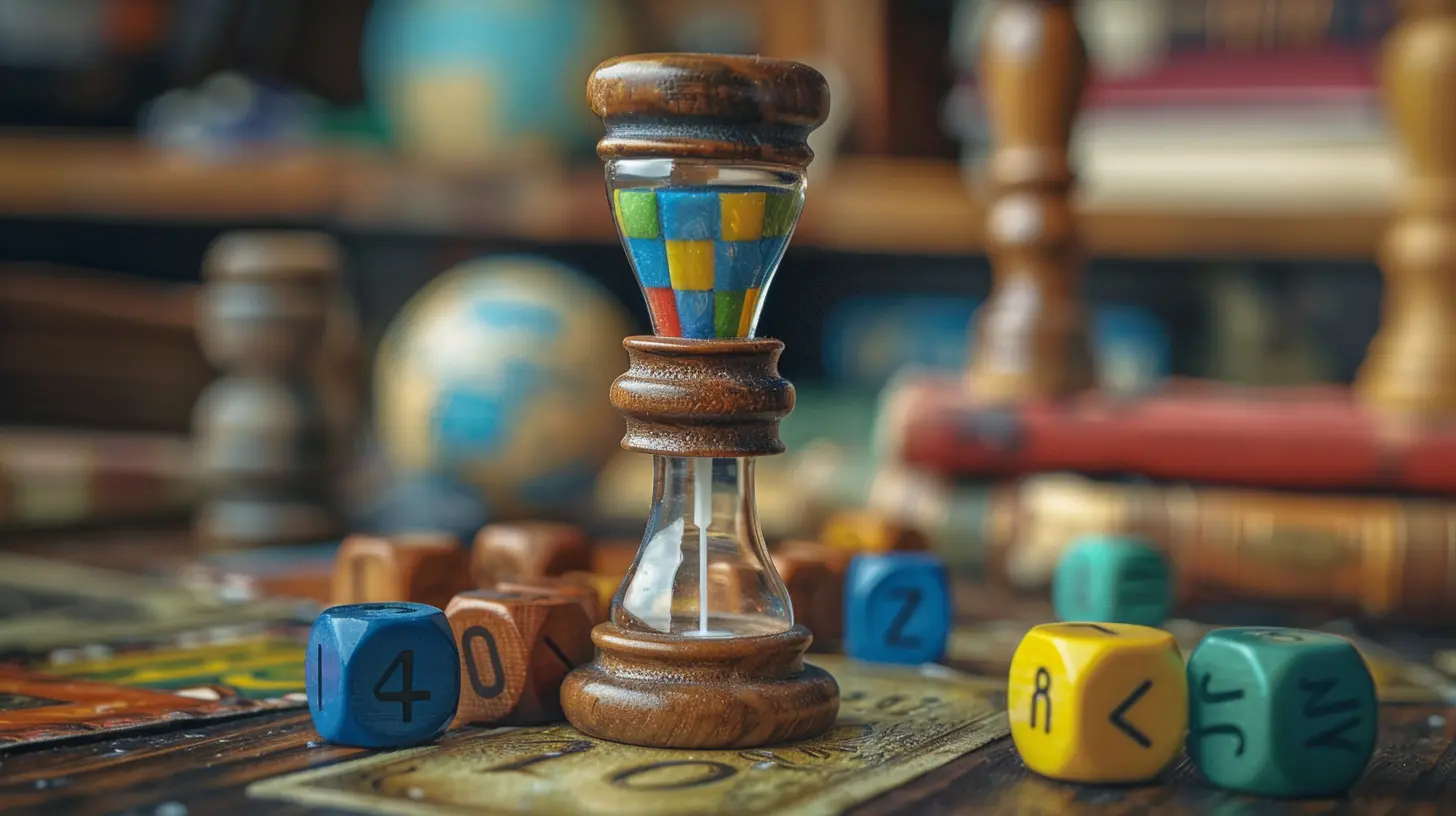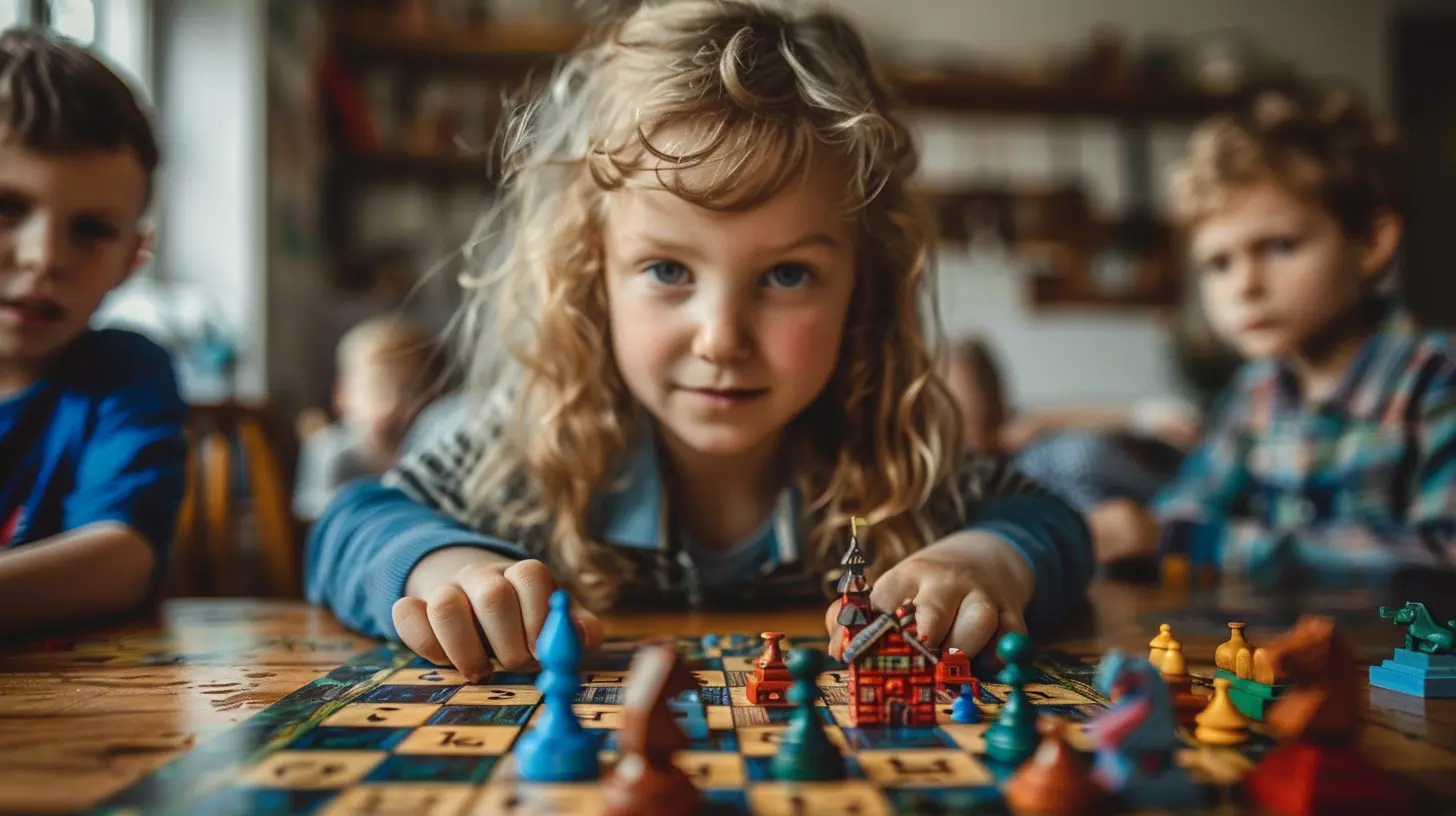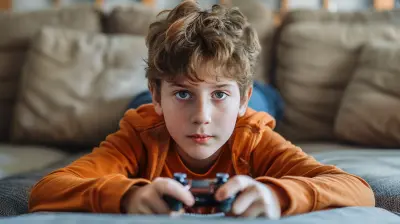Games That Teach Responsibility and Time Management
5 August 2025
Let’s face it—video games usually get a bad rap when it comes to productivity. Parents wag fingers, teachers raise eyebrows, and society generally assumes games are nothing more than time-wasters. But hold on! What if I told you there’s a whole world of games out there that actually teach you valuable life skills like responsibility and time management? Yep, you heard that right. Some games can genuinely help shape better habits—and they do it in the most fun way possible.
So, whether you're a parent looking for good games for your kiddo, a gamer searching for something meaningful, or someone attempting to adult a little better, this one's for you.
Why Games Can Be Surprisingly Good Teachers
Think about it—games are all about goals, objectives, schedules, and multitasking. Sound familiar? That’s everyday life stuff! The best part? Games teach these things without making it feel like a chore. You don’t just passively learn; you actively do. And when you mess up? You just respawn, reset, and try again.They say experience is the best teacher, and what’s gaming if not hands-on, crash-course experience in managing chaos?
The Magic Combo: Entertainment + Life Skills
Okay, so let’s break it down. What do we actually mean by “responsibility” and “time management” in gaming?- Responsibility: Managing tasks, nurturing characters or pets, completing quests, or keeping your game world running smoothly.
- Time Management: Juggling multiple objectives, completing tasks within time limits, or planning your in-game day efficiently.
Sound familiar? Kind of like planning your week, feeding your cat, and meeting work deadlines—just with more dragons.
Alright, grab your controller (or mouse), and let’s dive into some games that are as good for your brain as they are fun for your soul.
🎮 Top Games That Teach Responsibility and Time Management
1. Animal Crossing: New Horizons
Let’s start with a game that took over the world during lockdown—and for good reason!In Animal Crossing, you’re building your dream island life. That means paying off loans, building homes, arranging events, and collecting resources. Sounds simple? Think again. Time moves in real-time, so you’ve got to manage your tasks daily just like in real life. Want to grow your garden or catch that rare fish? Better plan your day accordingly.
It’s adorable, it’s relaxing, and it sneaks in a whole lot of real-life lessons.
Skills Learned:
- Task prioritization
- Financial responsibility (even if it’s fictional)
- Routine building
2. Stardew Valley
Ah, farming. The game starts with you inheriting a scruffy old farm, and from there, it’s all up to you. From sunrise to sunset, every in-game day gives you only a few hours to water crops, feed animals, mine, talk to villagers, and more. If you don’t plan? You flail. Hard.But here’s the cool part—you slowly get better. You start optimizing routines, remembering birthdays, and even budgeting for that fancy barn upgrade.
Skills Learned:
- Time-blocking
- Long-term vs. short-term planning
- Social responsibility (those town villagers count on you!)
3. The Sims Series
Let’s be honest—most of us started by trapping Sims in pools without ladders. But once you get past the chaos, The Sims is a goldmine for learning how to juggle life.Your Sims need to eat, sleep, work, socialize, exercise, and follow their dreams—all while avoiding burnout (sound familiar?). And YOU are responsible for making that happen.
Skills Learned:
- Micromanagement
- Balancing personal and work life
- Prioritizing daily tasks
4. Overcooked! & Overcooked! 2
Working in a kitchen is no joke. Now throw in some lava pits, conveyor belts, and monster customers—and you've got Overcooked! This fast-paced co-op game demands communication, planning, delegation, and working under pressure.You’ve got to work with your team to cook meals, deliver dishes, and manage chaos—all within strict time limits. It’s pure madness, but boy, does it make you better at teamwork and time management.
Skills Learned:
- Team coordination
- Rapid prioritization
- Crisis management (yes, that’s a skill!)
5. Two Point Hospital
If you’ve ever wondered what it’s like to run a hospital (without the actual life-or-death pressure), Two Point Hospital is a hilarious and surprisingly rewarding simulation.You’ll hire staff, manage money, build treatment rooms, and handle unexpected diseases like “Lightheadedness” (people with literal lightbulbs for heads). It’s goofy, yes—but also a masterclass in multitasking and responsibility.
Skills Learned:
- Resource allocation
- Staff management
- Crisis response planning
6. Minecraft (Survival Mode)
Sure, you can build floating castles and pink sheep rollercoasters in creative mode, but survival mode? That’s where the challenge really kicks in.You gather resources, build shelter before nightfall, monitor hunger and health, and plan expeditions. Everything you do has a consequence, and if you don’t keep your ducks in a row, it's game over (or at least a mad scramble to respawn your stuff).
Skills Learned:
- Strategic planning
- Resource management
- Self-reliance
7. Spiritfarer
This gem of a game is all about saying goodbye. You take on the role of a "Spiritfarer," helping spirits pass on to the afterlife. But while you’re playing ferryman of the dead, you’re also managing a boat, planting crops, feeding passengers, and upgrading accommodations.It's deeply emotionally intelligent and gently teaches care, routine, and emotional responsibility.
Skills Learned:
- Empathy and emotional responsibility
- Scheduling and task management
- Project planning
8. Cities: Skylines
Have you got what it takes to manage an entire city? From traffic flow to water supply, schools to sewage, Cities: Skylines lets you play god-mayor hybrid—and it's addictive.Forget SimCity; this is the grown-up version. You'll learn how one small planning error can cause major chaos (looking at you, one-way streets).
Skills Learned:
- Macro-level time management
- Infrastructure planning
- Long-term impact awareness
9. Pikmin 3 Deluxe
On the surface, Pikmin looks like a cute garden adventure. But under the hood? It’s a real-time strategy game all about using limited time and resources to solve puzzles and complete missions.You play as tiny space explorers commanding even tinier plant-like creatures called Pikmin, managing their tasks every day before the sun sets—fail to do so, and you might lose them forever. Ouch.
Skills Learned:
- Delegation
- Efficient task execution
- Time-pressure problem-solving
Bonus: Mobile Games That Sneak In Skills
Not all responsible gaming happens on consoles or PCs. Here are some bite-sized mobile games that pack big learning punches:- Habitica: A productivity tool disguised as a game—you create real-life tasks, earn experience for completing them, and level up.
- Time Planner: It’s a time management app gamified to reward planning and consistency.
- Plants vs. Zombies: Yes, it’s fun, but it also sneakily teaches you about resource allocation, timing, and defense strategies.
Convenient and constructive. Win-win!
Do These Games Really Teach Anything?
You might be wondering: “Okay, but do these skills transfer to real life?”Yes. 100% yes.
While you’re not going to become a financial wizard because you paid off Tom Nook, you are getting your brain into the habit of thinking strategically, planning ahead, and taking ownership of your actions. And let’s be honest—a lot of adults could use a bit of that training too.
Think of it like exercise. No, lifting a virtual pickaxe isn’t the same as hitting the gym, but it's still giving your brain a workout it didn’t know it needed.
How to Encourage Responsible Gaming
If you’re a parent or someone trying to game more productively, here are some quick tips:- Set playtime limits that encourage consistency, not bingeing.
- Discuss decisions made in-game. "Why did you pick that upgrade over another?"
- Let them fail. That’s how they learn!
- Join the fun. Play together and treat it like couch coaching.
Real Life Bonus: Building Better Habits
What happens when you actually apply these skills outside the screen? You get better at:- Planning your day
- Meeting deadlines
- Handling stress and pressure
- Taking ownership of your tasks
- Thinking ahead instead of reacting
Basically, you unlock the rarest achievement of all: adulting like a pro.
Final Thoughts
Gaming isn’t just about escaping reality. Sometimes, it’s about preparing for it.The beauty of these games is that they hide the medicine in the spoonful of sugar. You’re having so much fun petting your cows in Stardew or chasing butterflies in Animal Crossing that you don’t even realize you’re learning how to be more responsible and manage your time better.
So next time someone says video games are a waste of time, just smile, pick up your controller, and go teach yourself some time management—one pixel at a time.
all images in this post were generated using AI tools
Category:
Games For KidsAuthor:

Emery Larsen
Discussion
rate this article
2 comments
Nathaniel Thomas
Great list! These games truly emphasize responsibility and time management in an engaging way.
December 6, 2025 at 5:54 AM

Emery Larsen
Thank you! I'm glad you enjoyed the list and found the games engaging for teaching important skills.
Zephyrian McNeely
Because who needs real life?
August 11, 2025 at 3:34 PM

Emery Larsen
Games can provide valuable lessons in responsibility and time management, making them a fun and engaging way to develop essential life skills.


